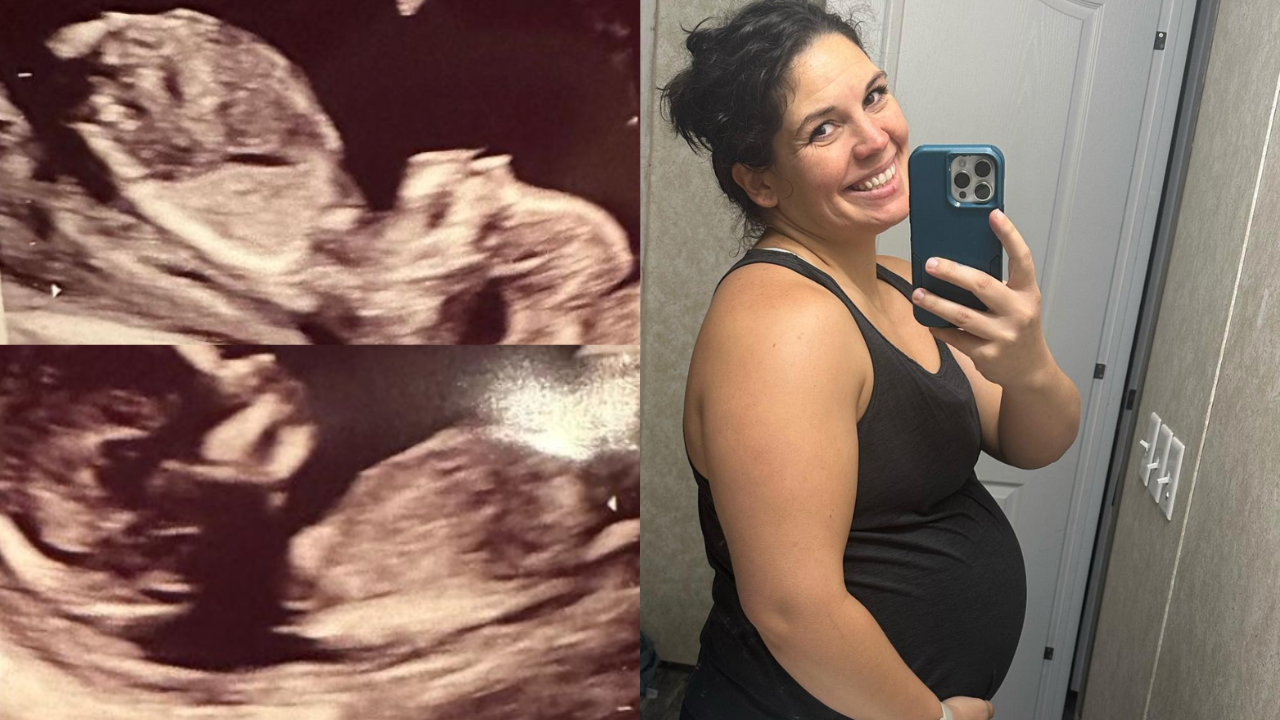An Alabama mother of three who was born with two uteruses is pregnant in both and the babies are due on Christmas Day.
RELATED STORIES: DDG Says The Internet Is ‘So Gullible’ After Halle Bailey Pregnancy Rumors Continue To Surface
Kelsey Hatcher,32, learned she was diagnosed with ‘uterus didelphys’ when she was 17 and learned about the dual pregnancy during an eight-week ultrasound appointment in May as reported by Metro UK. Although she is expected to have a cesarean section for one of the babies, Hatcher expects to give birth naturally but due to her condition, her uteruses may contract at different times which could span from minutes to days apart. She also documents her pregnancy with her husband Caleb under the Instagram handle @doubleuhatchlings.
Hatcher’s obstetrician-gynecologist said the miracle pregnancy most likely happened when ‘she ovulated separately and had one egg come down each fallopian tube, meaning coming down on each side of the uterus, and then sperm travelled up on each separate uterus and fertilization occurred separately.’
RELATED STORIES: Hailey Bieber Opens Up About ‘Disheartening’ Pregnancy Rumors: ‘Damn I Can’t Be Bloated One Time’
The chance of her having a baby in both wombs is one in five million. ‘They like to tell me at every doctor’s visit that “You are aware, we’ve never had a situation like this before, this is a new case for us altogether’’…But I feel like I have the best team for this situation and I’m at the best hospital at Alabama for what’s going on,’ she wrote in an Instagram post.
Women with two uteruses are a unique and often overlooked population. While the condition is rare, affecting an estimated 0.1% to 0.3% of women, it can have a significant impact on their lives. Uterus didelphys is a congenital condition, meaning that it is present at birth. It occurs when the two Müllerian ducts, which normally fuse to form a single uterus, fail to completely merge. As a result, women with uterus didelphys have two separate uteruses, each with its own cervix and fallopian tubes.
Most women with uterus didelphys are unaware of their condition until they reach puberty. Symptoms of uterus didelphys can include painful menstruation, heavy bleeding, and recurrent miscarriage. However, many women with the condition experience no symptoms at all.







